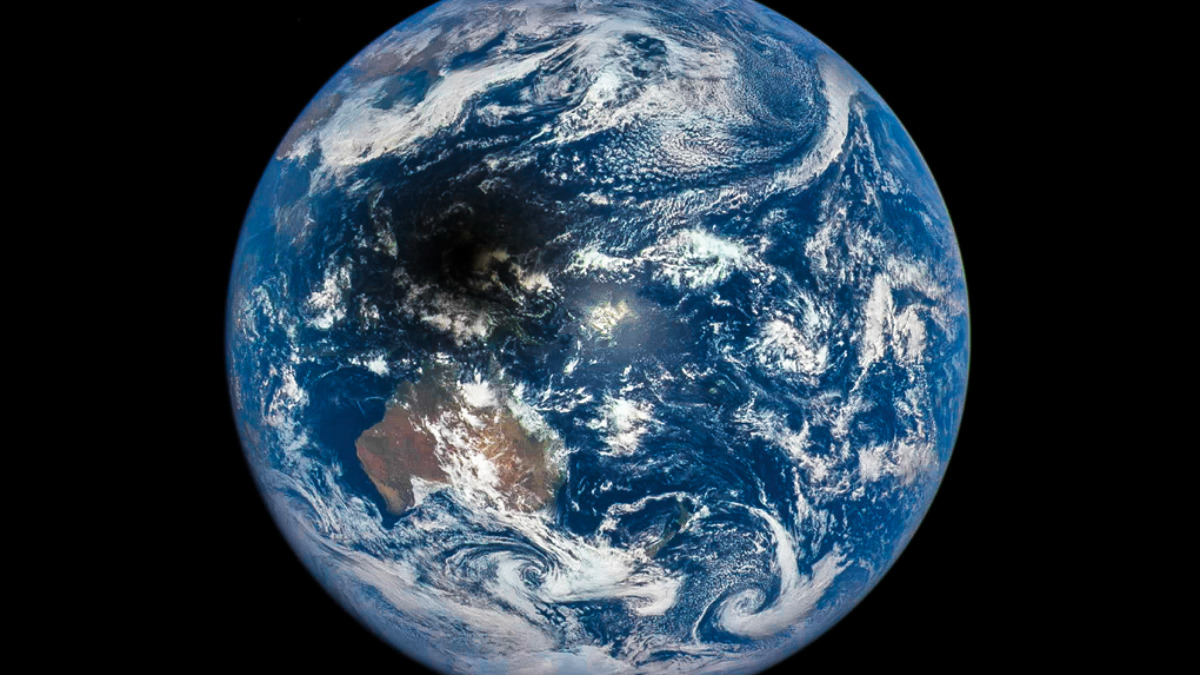The Earth’s ozone layer is healing, UN says
Experts predict the man-made hole in our planet’s protective shield will disappear by 2060

A free daily email with the biggest news stories of the day – and the best features from TheWeek.com
You are now subscribed
Your newsletter sign-up was successful
The ozone layer, which protects Earth from ultraviolet radiation, is healing from man-made damage, according to a new report from the United Nations.
Experts predict that the layer above the Northern Hemisphere could be fully repaired by the 2030s, and the hole above Antarctica will disappear by the 2060s.
The report comes more than 30 years after the signing of the Montreal Protocol, which phased out chlorofluorocarbons (CFCs) and other ozone depleting substances.
The Week
Escape your echo chamber. Get the facts behind the news, plus analysis from multiple perspectives.

Sign up for The Week's Free Newsletters
From our morning news briefing to a weekly Good News Newsletter, get the best of The Week delivered directly to your inbox.
From our morning news briefing to a weekly Good News Newsletter, get the best of The Week delivered directly to your inbox.
The announcement is “a rare piece of good news about the environment - and proof of what concerted global action can achieve,” the Huffington Post says.
How did it happen?
The thinning in the Earth’s protective shield was first observed in the 1970s. At its worst in the late 1990s, about 10% of the upper ozone layer was depleted, according to Nasa.
But thanks to a global commitment to eliminate the use CFCs in aerosols and coolants, the ozone has increased by 1 to 2% per year since 2000, the UN report found.
A free daily email with the biggest news stories of the day – and the best features from TheWeek.com
“It’s really good news,” said the study’s co-chair Paul Newman, chief Earth scientist at Nasa’s Goddard Space Flight Centre. “If ozone-depleting substances had continued to increase, we would have seen huge effects. We stopped that.”
The Montreal Protocol, lauded as one of the most successful multilateral agreements in history, is credited with preventing two million cases of skin cancer each year by 2030.
However, it not a complete success yet, according to the University of Colorado's Brian Toon, who was not part of the study. “We are only at a point where recovery may have started," he told the Associated Press, pointing to some areas of the ozone that haven’t yet repaired.
Another problem is that new technology has found an increase in emissions of a banned CFC out of countries in East Asia, AP reports.
Newman agrees there is still work to do. “I don’t think we can do a victory lap until 2060,” he said. “That will be for our grandchildren to do.”
-
 What are the best investments for beginners?
What are the best investments for beginners?The Explainer Stocks and ETFs and bonds, oh my
-
 What to know before filing your own taxes for the first time
What to know before filing your own taxes for the first timethe explainer Tackle this financial milestone with confidence
-
 The biggest box office flops of the 21st century
The biggest box office flops of the 21st centuryin depth Unnecessary remakes and turgid, expensive CGI-fests highlight this list of these most notorious box-office losers
-
 Epstein files topple law CEO, roil UK government
Epstein files topple law CEO, roil UK governmentSpeed Read Peter Mandelson, Britain’s former ambassador to the US, is caught up in the scandal
-
 Iran and US prepare to meet after skirmishes
Iran and US prepare to meet after skirmishesSpeed Read The incident comes amid heightened tensions in the Middle East
-
 Israel retrieves final hostage’s body from Gaza
Israel retrieves final hostage’s body from GazaSpeed Read The 24-year-old police officer was killed during the initial Hamas attack
-
 China’s Xi targets top general in growing purge
China’s Xi targets top general in growing purgeSpeed Read Zhang Youxia is being investigated over ‘grave violations’ of the law
-
 Panama and Canada are negotiating over a crucial copper mine
Panama and Canada are negotiating over a crucial copper mineIn the Spotlight Panama is set to make a final decision on the mine this summer
-
 Why Greenland’s natural resources are nearly impossible to mine
Why Greenland’s natural resources are nearly impossible to mineThe Explainer The country’s natural landscape makes the task extremely difficult
-
 Iran cuts internet as protests escalate
Iran cuts internet as protests escalateSpeed Reada Government buildings across the country have been set on fire
-
 US nabs ‘shadow’ tanker claimed by Russia
US nabs ‘shadow’ tanker claimed by RussiaSpeed Read The ship was one of two vessels seized by the US military